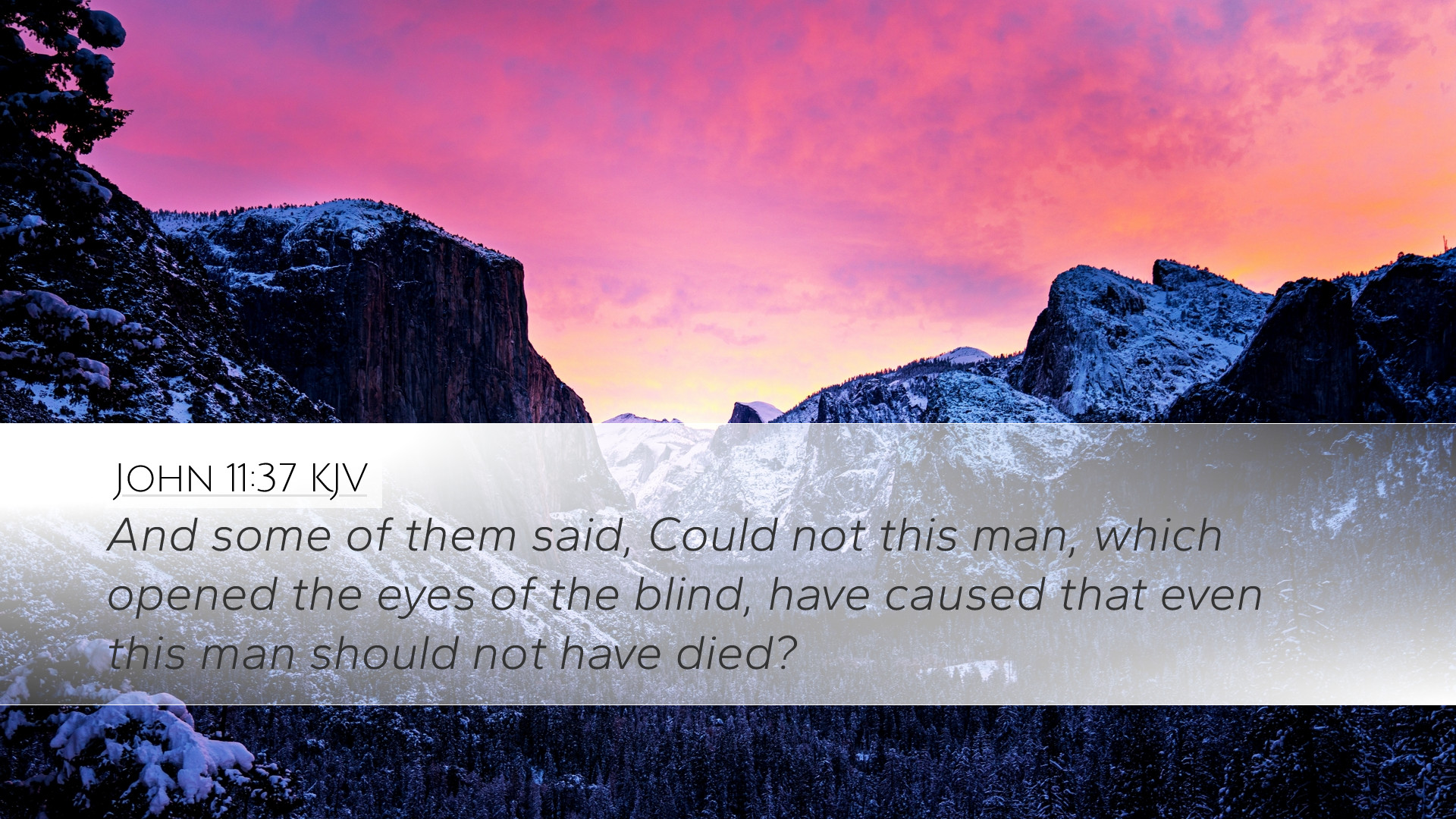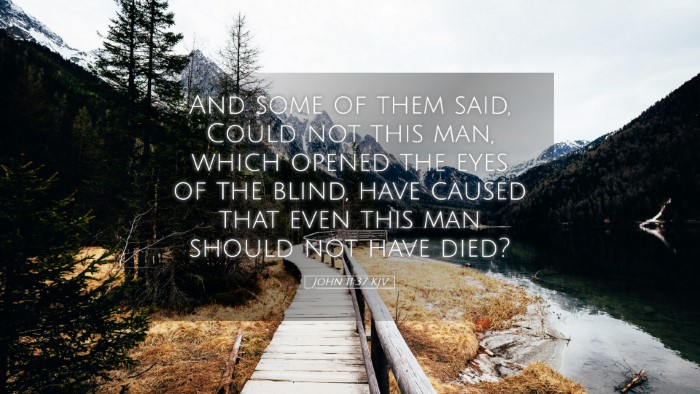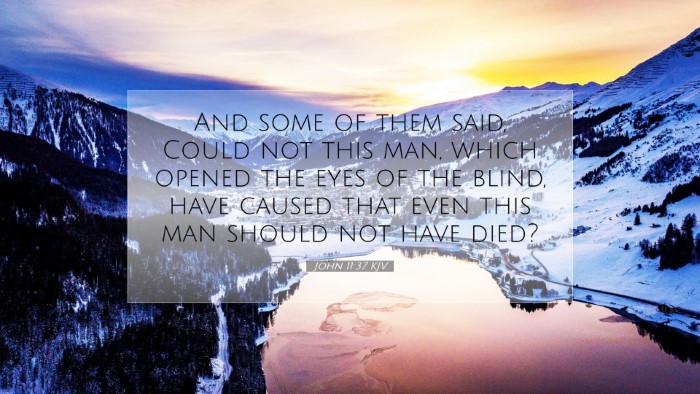Commentary on John 11:37
John 11:37 states, "But some of them said, Could not this man, which opened the eyes of the blind, have caused that even this man should not have died?" This verse occurs in the context of the narrative concerning the death and resurrection of Lazarus, providing a profound investigation of human understanding of divine capability and the nature of faith.
Contextual Background
This event occurs after Lazarus has died and Jesus arrives at Bethany. The mourning surrounding Lazarus' death brings a mix of hope and despair among the people, leading them to question the power of Jesus. The skepticism present in this verse reflects a common theme in the Gospels: misunderstanding of Jesus’ true identity and purpose.
Thematic Insights
The verse encapsulates themes of disbelief and the limits of human understanding in juxtaposition with divine providence:
-
Human Skepticism:
Matthew Henry notes that such responses reveal the hearts of those who are quick to doubt. The participants in this moment are grappling with the profound implications of Jesus’ power and His inability—or claimed inability—to prevent death in this instance.
-
Divine Timing:
Albert Barnes emphasizes that the timing of Jesus’ actions does not align with human expectations. Lazarus’ death serves a greater purpose in demonstrating the glory of God, a theme echoed throughout the Gospels.
-
Faith and Understanding:
Adam Clarke remarks on the transformational expectation of faith—those present fail to grasp that Jesus’ capacity goes beyond mere healing; it includes authority over death itself. Their limited understanding exemplifies a barrier to witnessing the true nature of faith.
Theological Implications
This verse challenges readers to reflect on their beliefs about Jesus and His capabilities. It provokes questions about faith, mortality, and divine power:
-
Faith in Adversity:
In moments of suffering, it is easy to succumb to doubt, as seen with the onlookers in this passage. Pastors might utilize this verse to encourage believers that faith persists even amidst the bleakest trials.
-
Understanding God’s Will:
Scholars could examine how this verse illuminates the concept of God’s sovereignty. The struggle between human desire for immediate intervention and divine will provides a complex picture of God’s relationship with humanity.
-
The Nature of Miracles:
This reference to Jesus opening the eyes of the blind introduces dialogue around miracles. It challenges the audience to recognize that miracles serve as signs pointing towards a deeper spiritual reality.
Pastoral Applications
For pastors, John 11:37 offers rich material for sermons dealing with themes of hope, loss, and the struggle of faith during times of hardship. Several practical applications could include:
-
Encouragement in Grief:
Pastors can relate this episode to the experiences of their congregation, addressing the depth of grief while introducing the hope provided by Christ’s eventual resurrection of Lazarus.
-
Teaching on Faith:
Teachings can be geared toward fostering a stronger foundation of faith that accepts God’s plans even when they appear harsh or confusing.
-
Miracles and Ministry:
Praise the miraculous works of Jesus as not just acts of compassion, but as profound demonstrations of His divinity that invite believers into a deeper understanding of their faith.
Conclusion
In summary, John 11:37 serves as a poignant reminder of the complexity of human faith and understanding. The interplay of doubt and the possibility of divine miracles offers a fertile ground for theological reflection and personal growth in the life of both pastors and faithful believers. In the context of Christ’s ministry, believers are called to trust in the meaning and timing of God’s works, especially when faced with the silence of heaven in times of distress.


